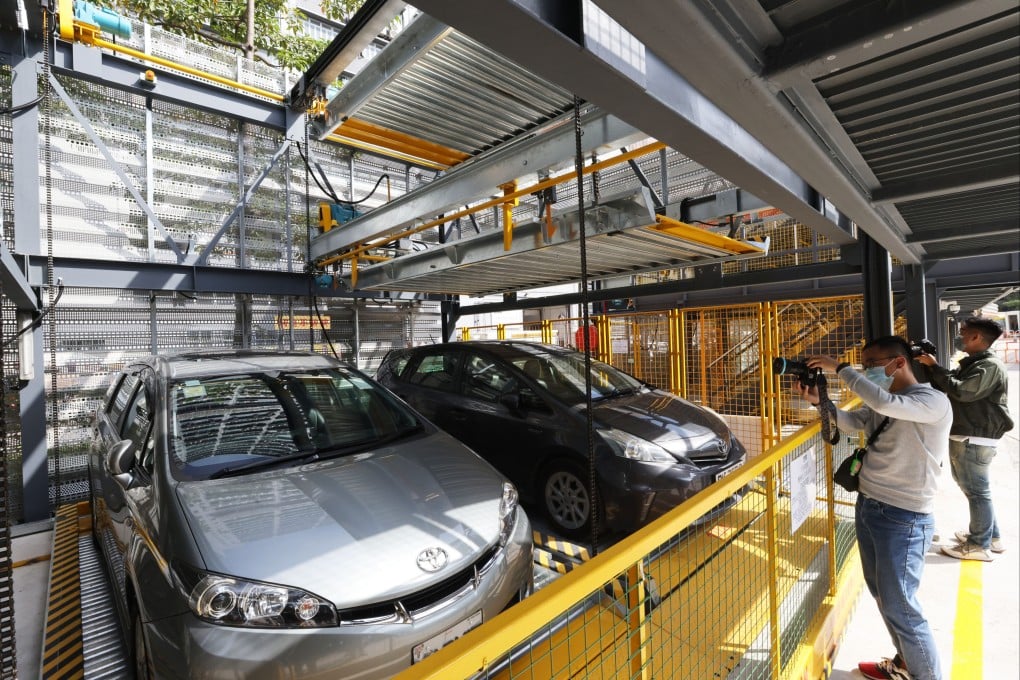Hong Kong’s first automated parking system to commence service on Thursday in Tsuen Wan
- System installed in car park at junction of Hoi Shing Road and Hoi Kok Street in Tsuen Wan, which has 78 automated parking spaces
- Transport officials hope system will boost spatial efficiency, reduce or eliminate illegal parking

Hong Kong’s first automated parking system will commence service on Thursday after a two-year trial.
The system, aimed at easing a shortage of parking spots, is installed in a short-term tenancy car park at the junction of Hoi Shing Road and Hoi Kok Street in Tsuen Wan. The site has a total of 245 parking spaces, of which 78 are automated.
“The automated parking system can further increase the number of parking spaces and [boost] spatial efficiency,” said Ricky Ho Wai-kee, assistant commissioner for transport (strategic task force).

The government started testing the system in 2019 and planned to roll it out at other locations including Tai Po, Sham Shui Po, Tseung Kwan O, Chai Wan and Sheung Wan.
Automated car parks are generally equipped with a lift and revolving platform. A driver will park his vehicle at the entrance, and the car is automatically transported to a designated space through the use of parking pallets.
“The whole process should take just around two to three minutes,” said Keith Tang Kam-fai, principal project coordinator (parking) of the Transport Department. “The main objective of the automated parking system is to try to reduce or even eliminate illegal parking.”
Automated systems typically provide 30 per cent to 100 per cent more parking space, compared with conventional car parks.